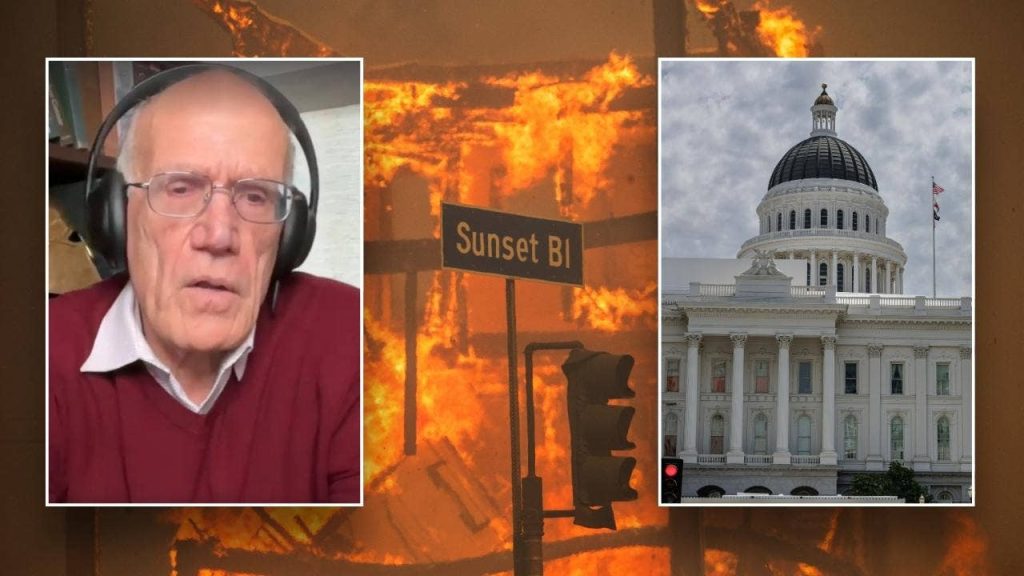The devastating Los Angeles wildfires of January 2027 have ignited a firestorm of criticism directed at California’s leadership and exposed deep-seated vulnerabilities within the state’s governance. Historian Victor Davis Hanson posits that this crisis could serve as a catalyst for a “political shock,” a potential “reawakening” among Californians disillusioned with the status quo. The fires, which ravaged affluent, predominantly liberal enclaves like Pacific Palisades, have brought the consequences of long-held political ideologies into stark relief for a demographic previously insulated from such direct impacts. This unprecedented experience of loss and disruption among the wealthy, coupled with the state’s perceived inadequate response, may engender a shift in political allegiances and priorities.
The scale of the destruction, estimated to reach hundreds of billions of dollars, is forcing wealthy residents to confront the bureaucratic realities of rebuilding. Navigating the complexities of the Coastal Commission and Los Angeles Planning Commission, securing permits, and grappling with the rebuilding process is expected to generate widespread frustration. This frustration, Hanson argues, is likely to extend beyond the immediate aftermath of the fires and could significantly impact the political landscape, potentially diminishing the national influence of California politicians. The fires have exposed the tangible consequences of policies and regulations, prompting a reassessment of their effectiveness and appropriateness.
Compounding the crisis is the perceived inadequacy of the state’s response. Los Angeles Mayor Karen Bass’s initial absence during the disaster, coupled with reports of empty fire hydrants, a malfunctioning reservoir, a defunded fire department, and insufficient water infrastructure, despite allocated funding for new reservoirs, has drawn sharp criticism. These shortcomings have fueled public anger and raised questions about the efficacy of resource allocation and disaster preparedness. Governor Newsom’s subsequent executive order to expedite rebuilding efforts by suspending certain state commission requirements has been met with skepticism, with critics questioning why such measures weren’t implemented preemptively.
The wildfires have also amplified pre-existing issues plaguing California, notably the ongoing exodus of residents to other states. This “California exodus” is attributed to a confluence of factors, including high taxes, exorbitant housing costs, rising crime rates, and a challenging business environment. These factors have prompted individuals and businesses alike to seek more favorable conditions in states like Texas, Florida, Tennessee, and North Carolina. The departure of major corporations like Tesla, Oracle, Charles Schwab, and Chevron further underscores the state’s economic challenges. The wildfires, seen as another manifestation of California’s struggles, could further accelerate this outward migration.
Hanson suggests that this confluence of factors – the devastating fires, the perceived government failures, and the ongoing exodus – creates a fertile ground for a potential political realignment. He posits that a shrewd Republican candidate or political figure could capitalize on this widespread discontent and galvanize a significant portion of the population. However, he notes the current Republican Party’s apparent lack of direction in addressing California’s complex political landscape. The party’s internal struggle between accommodating left-leaning voters and appealing to a more conservative base leaves a void in leadership and a missed opportunity to connect with a potentially receptive electorate.
The wildfires, therefore, represent not just a natural disaster but a potential turning point in California politics. The combination of widespread property damage, perceived governmental shortcomings, and existing economic and social pressures could lead to a significant shift in voter sentiment. Whether this translates into a genuine political realignment remains to be seen. However, the potential for a “reawakening” among Californians, particularly among those previously insulated from the consequences of the state’s policies, is undeniable. The crisis has exposed vulnerabilities and sparked a critical examination of leadership and governance, potentially paving the way for a new political era in the Golden State.













